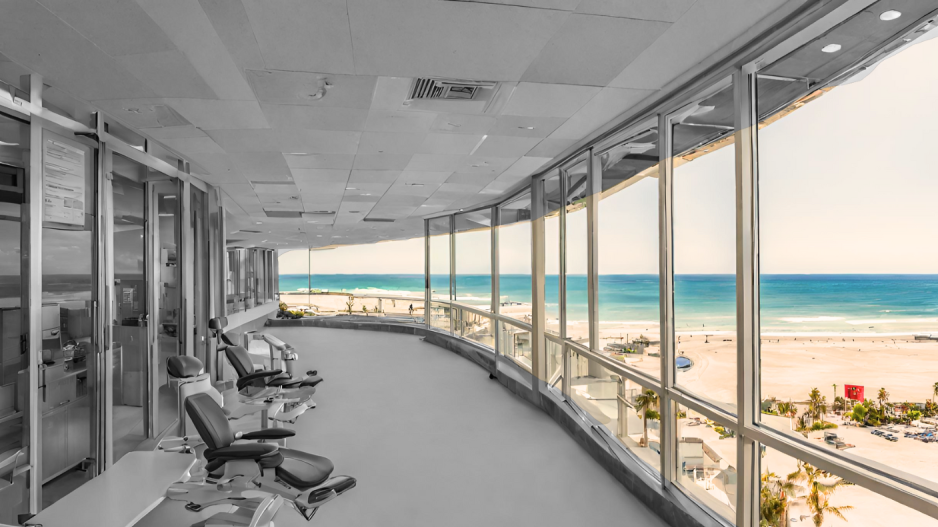Is Cyprus Ready to Become a Health Holiday Hot Spot?
“Cyprus has pegged medical tourism as a pillar of its strategic action plan for enhancing Cyprus tourism.”
Japanese onsens are hot mineral springs that have been known to possess healing properties which encourage and inspire ill-stricken people to visit them. An onsen typically has beautiful views, a relaxing atmosphere, and caters to visitors with care. This early form of medical tourism represents the core purpose of why people travel to other countries to seek medical remedies and simultaneously experience a leisurely recovery period, otherwise known as health, or medical tourism.
Over time, healthcare has transformed from temples and hot mineral springs to hospitals and medical centers. As new diseases arise, technologies and knowledge must evolve to provide appropriate treatments. However, access to healthcare has become increasingly expensive, leading people to travel abroad. Some countries may also excel at certain procedures, attracting international patients. Medical tourism is a critical part of the health industry, improving access to people’s health needs globally.
Say you are a resident in the USA, and you succumb to an illness. The average spending of a US resident in 2021 was $12,914, amounting to a total of $4.3 trillion spending on healthcare nation-wide. This factors into the reason why an estimated 1.2 million US residents journey to Mexico every year to undergo surgeries that can save up to 80%, compared to similar procedures in the US.
Medical tourism in Mexico is promoted and advertised as a more affordable, leisurely healthcare destination with highly educated doctors, offering solutions to many US residents. Not only does this provide solutions for those who seek remedies to their ailments, but it can also boost a country’s economy, as seen with Mexico and their $6.75 billion medical tourism market value.
It is common for people looking to revamp their social and dating life to seek hair transplant treatments. A Medihair study indicates that 37% of their participants who underwent hair transplants were for reasons pertaining to their social/dating life. They also found that of the 3.4 million hair transplant procedures that were performed in 2021, 1.05 million were done in Turkey, highlighting Turkey’s successful role in medical tourism.
Health tourism is not a new trend, as it can be observed throughout history until today, and may potentially become a successful sector in Cyprus.
Health tourism is now becoming a priority in Cyprus’ tourism industry, as marketers, doctors, and the sector as a whole are seeking to promote the island as a healing destination. Understanding Cyprus’ potential to be a medical tourism hot spot first requires some insights into the country’s healthcare systems.
Cyprus’ health system is divided into three main systems that consists of a private system, a public system, and a national health scheme. The state finances the public system’s budget, whereas the private system is almost entirely financed by investors and other stakeholders.
There are challenges within both systems. The public system is known to have extensive waiting lists, and the private system possesses advanced and expensive medical technology that is not utilized to its fullest extent, essentially creating a loss. However, in 2019, Cyprus’ General Healthcare System (GHS), was established to provide financially accessible treatments and medicines and balance the needs of patients between the public and private sectors.
Additionally, investments in Cyprus’ health systems have been increasing. In 2019, an estimated €1.6 billion was invested across the sector including hospitals, healthcare providers, and diagnostic laboratories, among others. In the same year, Cyprus spent 7% of its GDP on its health sector. These factors accumulated and helped boost the gradual implementation of the island’s GHS.
In 2020, physicians enrolled in the GHS saw just over five million of the six million out-patients that year; a testament to the successful implementation of the new system.
Across these systems, the most common treatments patients seek, aside from treating common injuries or illnesses, are dentistry, cosmetic and plastic surgery, eye surgery, advanced prenatal treatments including in vitro fertilization (IVF), oncological treatments, and cardiology treatments.
Receiving such treatments abroad can be much more costly than in Cyprus. A simple example of a single day of stay at a hospital in the US is upwards of $2,000, whereas in Cyprus the cost is significantly reduced to around €200. Another example would be the difference in cost of cosmetic surgeries in US hospitals ($5,000-$10,000) compared to providers in Cyprus ($1,600-$2,000).
Cyprus may be an ideal health tourism destination not only for the more favorable costs, but also for the leisurely experience the island provides for patients recovering from surgeries or other treatments. It is common knowledge that Cyprus hosts lucious beaches, and immaculate hospitality, which is reflected in the three million tourists that Cyprus welcomed in 2022.
The island’s healthcare system has been hailed for efficiently managing the pandemic, as well as for its efforts in keeping the Cypriot population among the healthiest in the European region. This inspired the World Health Organization (WHO) to establish a new WHO office in Cyprus.
In order to elevate Cyprus’ capacity to become a leading health tourism destination, the government must align itself with significant targets to bring this goal to fruition. According to Cyprus Invest, “the Cyprus government has pegged medical tourism as one of the pillars of its strategic action plan for enhancing Cyprus tourism for the next decade to 2030 and is currently developing a new legal framework that will promote investment into new rehabilitation services on the island”.
The mission to boost Cyprus’ medical tourism agenda is also supported by one of Nicosia’s largest private hospitals, the American Heart Institute, and its co-founder Dr. Marinos Soteriou. As stated in the previously mentioned Cyprus Invest article, he believes that “there are plenty of areas, including cancer and cosmetic surgery, which, combined with the hospitality sector and cutting-edge technology that can be introduced, is a magnet to bring in patients and transform the image of Cyprus as a healthcare destination.”
Cyprus also has a dedicated portal for foreigners traveling to Cyprus for treatments, and indicates that not only is it cost effective, but access to healthcare is faster for international patients who may also stay at luxury villas while recuperating from their procedures.
To add to these beneficial factors for international patients, Cyprus is modernizing its healthcare industry to improve accessibility and transparency between specialists and patients. The island may not contain healing temples and hot mineral springs, however, its warm climate, hospitable culture, and affordable treatments can make Cyprus an elite health tourism destination in time to come.






